Measuring Quality of Life among Cancer Patients in Clinical Trials. A Bibliometric Study
Keywords:
Quality of life, cancer, clinical trials, EORTC, outcome assessmentAbstract
Health Related Quality of Life (HRQL) refers to the evaluation a patient makes of his/her current functional state and sense of well-being compared to the ideal. The measurement of quality of life in clinical trials (CT) provides a more accurate evaluation on how well individual patients or groups of patients feel, and what benefits and adverse events might occur as a result of medical intervention. In oncological research, quality of life has been identified as the second most important outcome, preceded only by survival. In order to establish how quality of life evaluation was being carried out on clinical trials for cancer, we conducted a data base search at MEDLINE and LILACS. Following selection based upon elegibility criteria, 192 articles were chosen. The first CT to measure quality of life were published in 1992; the most frequently studied neoplasia was breast cancer; in the case of colorectal cancer, the trend was towards fewer quality of life measurement studies. Five studies were found in which non-specific instruments were utilized to measure the construct. Due to the relevance of quality of life, it is necessary to carry out similar searches to evaluate these measurements in other kinds of epidemilogical and pathological studies.
Author Biographies
Ricardo Sánchez, Instituto Nacional de Cancerología
Instituto Nacional de Cancerología. Bogotá, Colombia.
Mónica Ballesteros, Instituto Nacional de Cancerología
Instituto Nacional de Cancerología. Bogotá, Colombia.
Alejandro Gómez Aulí, Instituto Nacional de Cancerología
Instituto Nacional de Cancerología. Bogotá, Colombia.
References
Testa M, Simonson D. Assesment of quality-of-life outcomes. N Engl J Med. 1996;334(13):835-40.
https://doi.org/10.1056/NEJM199603283341306
Ardila E, Sánchez R, Echeverry J. Estrategias de investigación en medicina clínica. 1a ed. Bogotá: El Manual Moderno; 2003.
Centers for Disease Control and Prevention. Measuring Healthy Days. Atlanta, Georgia: CDC; 2000.
Guyatt G, Feeny D, Patrick D. Measuring health-related quality of life. Ann Intern Med. 1993;118(8):622-9.
https://doi.org/10.7326/0003-4819-118-8-199304150-00009
Siddiqui F, Kachnic L, Movsas B. Quality-of-life outcomes in oncology. Hematol Oncol Clin North Am. 2006;20(1):165-85.
https://doi.org/10.1016/j.hoc.2006.01.003
Waldron D, O'Boyle C, Kearney M, Moriarty M, Carney D. Quality-of-life measurement in advanced cancer: assessing the individual. J Clin Oncol. 1999;17(11):3603-11.
https://doi.org/10.1200/JCO.1999.17.11.3603
Shimozuma K, Imai H, Kuroi K, Ohsumi S, Ono M. Recent topics of health outcomes research in oncology. Breast Cancer. 2007;14(1):60-5.
https://doi.org/10.2325/jbcs.14.60
Sloan J, Frost M, Berzon R, Dueck A, Guyatt G, Moinpour C, et al. The clinical significance of quality of life assessments in oncology: a summary for clinicians. Support Care Cancer. 2006;14(10):988-98.
https://doi.org/10.1007/s00520-006-0085-y
Penson D, Litwin M, Aaronson N. Health related quality of life in men with prostate cancer. J Urol. 2003;169(5):1653-61.
https://doi.org/10.1097/01.ju.0000061964.49961.55
Frost M, Sloan J. Quality of life measurements : a soft outcome-or is it?. Am J Manag Care. 2002;8(18 Suppl):S574-9.
Movsas B. Quality of life in oncology trials: a clinical guide. Semin Radiat Oncol. 2003;13(3):235-47.
https://doi.org/10.1016/S1053-4296(03)00029-8
Dancey J, Zee B, Osoba D, Whitehead M, Lu F, Kaizer L, et al. Quality of life scores: an independent prognostic variable in a general population of cancer patients receiving chemotherapy. The National Cancer Institute of Canada Clinical Trials Group. Qual Life Res. 1997;6(2):151-8.
https://doi.org/10.1023/A:1026442201191
Blazeby J, Brookes S, Alderson D. The prognostic value of quality of life scores during treatment for oesophageal cancer. Gut. 2001;49(2):227-30.
https://doi.org/10.1136/gut.49.2.227
Montazeri A, Milroy R, Hole D, McEwen J, Gillis C. Quality of life in lung cancer patients: as an important prognostic factor. Lung Cancer. 2001;31(2-3):233-40.
https://doi.org/10.1016/S0169-5002(00)00179-3
Staquet M, Hays R, Fayers P, (editors). Quality of life assessment in clinical trials: methods and practice. 1st ed. Oxford: Oxford University Press; 1998.
Wedding U, Pientka L, Höffken K. Quality-of-life in elderly patients with cancer: a short review. Eur J Cancer. 2007;43(15):2203-10.
https://doi.org/10.1016/j.ejca.2007.06.001
Efficace F, Osoba D, Gotay C, Sprangers M, Coens C, Bottomley A. Has the quality of health-related quality of life reporting in cancer clinical trials improved over time? Towards bridging the gap with clinical decision making. Ann Oncol. 2007;18(4):775-81.
https://doi.org/10.1093/annonc/mdl494
Naito M, Nakayama T, Fukuhara S. Quality of life assessment and reporting in randomized controlled trials: a study of literature published from Japan. Health Qual Life Outcomes. 2004;2:31.
https://doi.org/10.1186/1477-7525-2-31
Lee C, Chi K. The standard of reporting of health-related quality of life in clinical cancer trials. J Clin Epidemiol. 2000;53(5):451-8.
How to Cite
Downloads
Downloads
Issue
Section
License
Todos los derechos reservados.



